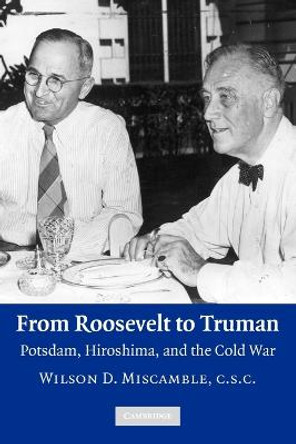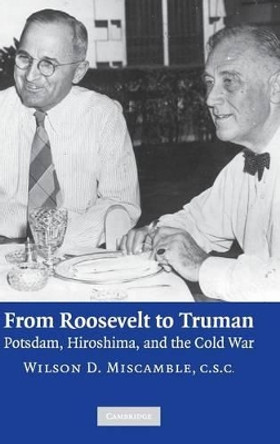Description
Drawing on recently released diaries and records of Truman, Eisenhower and others, Alperovitz re-evaluates the assumptions, hesitations and decisions that precipitated the use of atomic weapons and traces how possession of the bomb changed American strategy toward the Soviet Union at the Potsdam Conference and helped to set it on a course that contributed to the swift beginning of the Cold War.
Most historians of the period now agree that diplomatic considerations related to the Soviet Union played a major role in the decision to use the bomb. Atomic Diplomacy pioneered this new understanding. Today we still live in Hiroshima's shadow; this path breaking work is timely and urgent reading for anyone interested in the history - and future - of peace and war.
About the Author
Gar Alperovitz is a historian and political economist and is President of the National Center for Economic Alternatives in Washington DC. He has been a fellow of Kings College Cambridge and the Kennedy Institute at Harvard. He has contributed to many publications including the New York Times, the Washington Post and the Nation. A BBC special on Alperovitz's work was screened 1989.
Reviews
'A daring and elaborate work of historical reconstruction' -- New York Review of Books
'Since its publication almost everyone who has written about the beginning of the atomic age has praised or denounced the book' -- New York Times
Book Information
ISBN 9780745309477
Author Gar Alperovitz
Format Paperback
Page Count 414
Imprint Pluto Press
Publisher Pluto Press
Weight(grams) 609g







